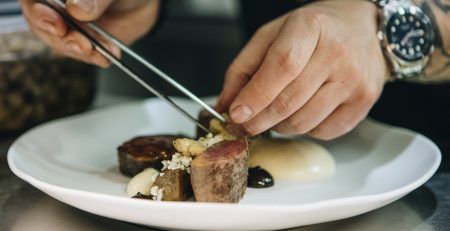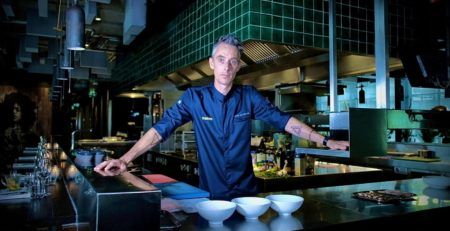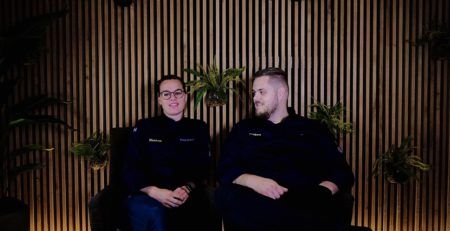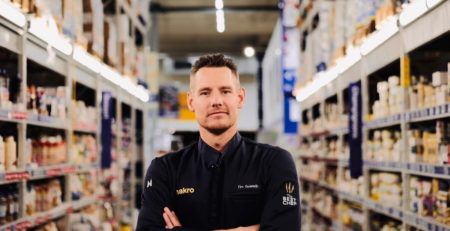Fueled by his profound love for pizza and a burning desire to share its essence with the world, Paolo founded Peppina Pizzeria. His unwavering commitment to preserving the heritage of Neapolitan pizza, coupled with his dedication to quality and authenticity, propelled Peppina to the zenith of the Thai culinary scene.
Thanwa Seesaed, a Thai with deep ties to Italian cuisine, forged his path from humble beginnings as a pizza delivery man in Naples. His formative years in Italy cultivated a profound appreciation for the culinary traditions that define Neapolitan pizza. Upon returning to Thailand, Thanwa joined forces with Paolo Vitaletti.
Nestled in the heart of Bangkok’s vibrant culinary landscape, Peppina Pizzeria stands as a beacon of authentic Neapolitan cuisine. Since its inception, Peppina has remained steadfast in its pursuit of excellence, meticulously sourcing the finest ingredients – from imported Italian products to local delicacies – to craft pizzas that pay homage to Naples’ time-honored traditions.
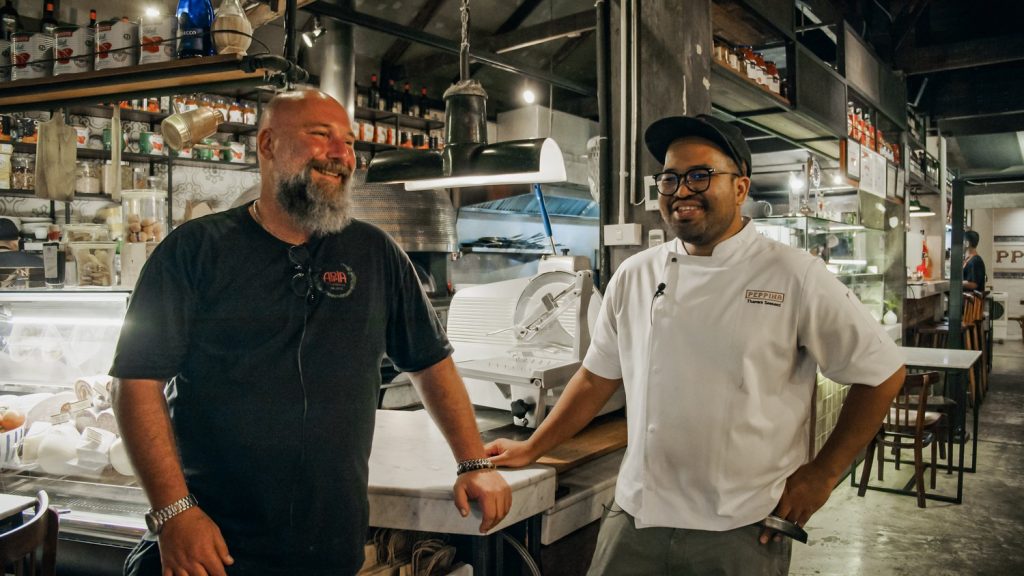
Paolo Vitaletti: I came to Thailand to work, and then I stayed because I wanted to. I had already opened one Italian restaurant, another restaurant, and one Roman trattoria, but I fell in love with pizza. So in 2014, I went to Naples to learn how to make pizza with the Associazione Verace Pizza Napoletana. And I wanted to recreate the Neapolitan pizza culture here in Bangkok because it wasn’t present here. And then, after this experience, I understood the secret of Neapolitan pizza, which doesn’t exist; it’s just craftsmanship. We opened Peppina. The goal indeed was to create and export Neapolitan pizza here in Thailand and teach a bit of the pizza culture. That’s when it started, how it started. It was a great success because people understood the diversity of pizza and its products. We did great work to import products from small producers of the region, and therefore, it was a great success. We still continue, we proceed with this project, which became a reality integrated here in Thailand and helped other pizzerias to grow, so a bit of everything related to this industry has grown. So this is a bit of history of Peppina. And then EM?? Join us… He came in 2016.
Thanwa Seesaed: I lived in Naples. I’m originally Thai, but I lived in Naples, where I grew up. I was 9 years old when I moved there, and that’s where ‘gavetta’ as they say in Naples, began. I started as a pizza delivery guy, and that’s when I fell in love with pizza. So Naples, having grown up there, I know what Neapolitan pizza means to Neapolitans, to Italians. It’s not just a type of dish, a form of food; it’s their pride. When people discuss Naples, Italy, pizza is always part of the conversation. I feel a strong connection to the city of Naples, and I want to share all my experiences with the Thai people. That’s it.
Paolo Vitaletti: Yes, we are fortunate because, being in Thailand with him, he can communicate even more to all. He has become an ambassador of Neapolitan culture and of the pizzeria here in Thailand. So, it has been a great bond.
The Best Chef: What is the difference, for example, between making pizza in Naples or doing it at Falcone? Do you notice any differences?
Thanwa Seesaed: Yes, a lot, a lot. Yes, yes a lot. Pizza is not a part of Thai culture, for Thai people, so what Paolo mentioned is what we are looking for. Actually, now we are beginning to understand what Neapolitan pizza is. Everything is based on products, such as the dough, leavening, so it’s a lot…
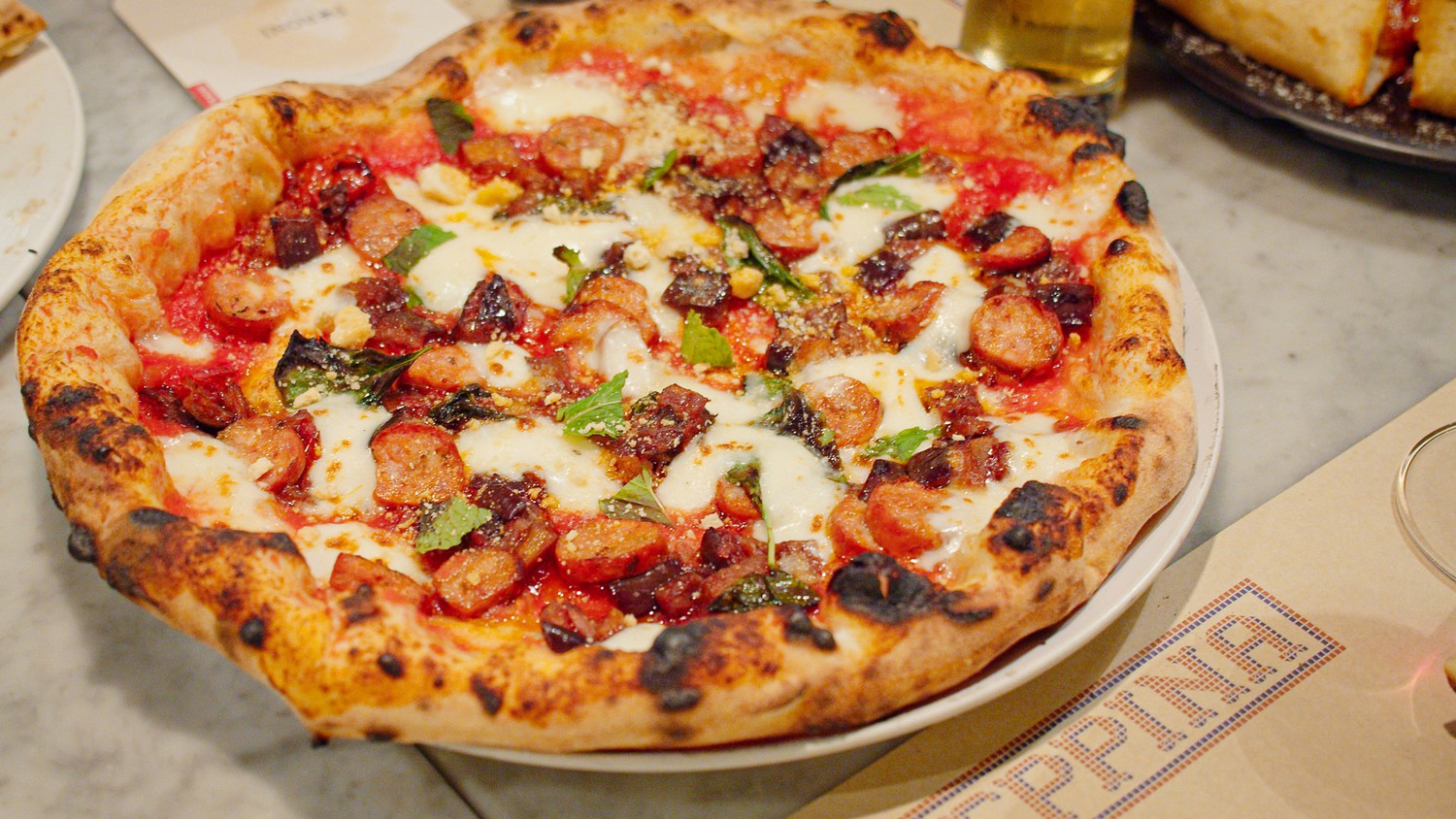
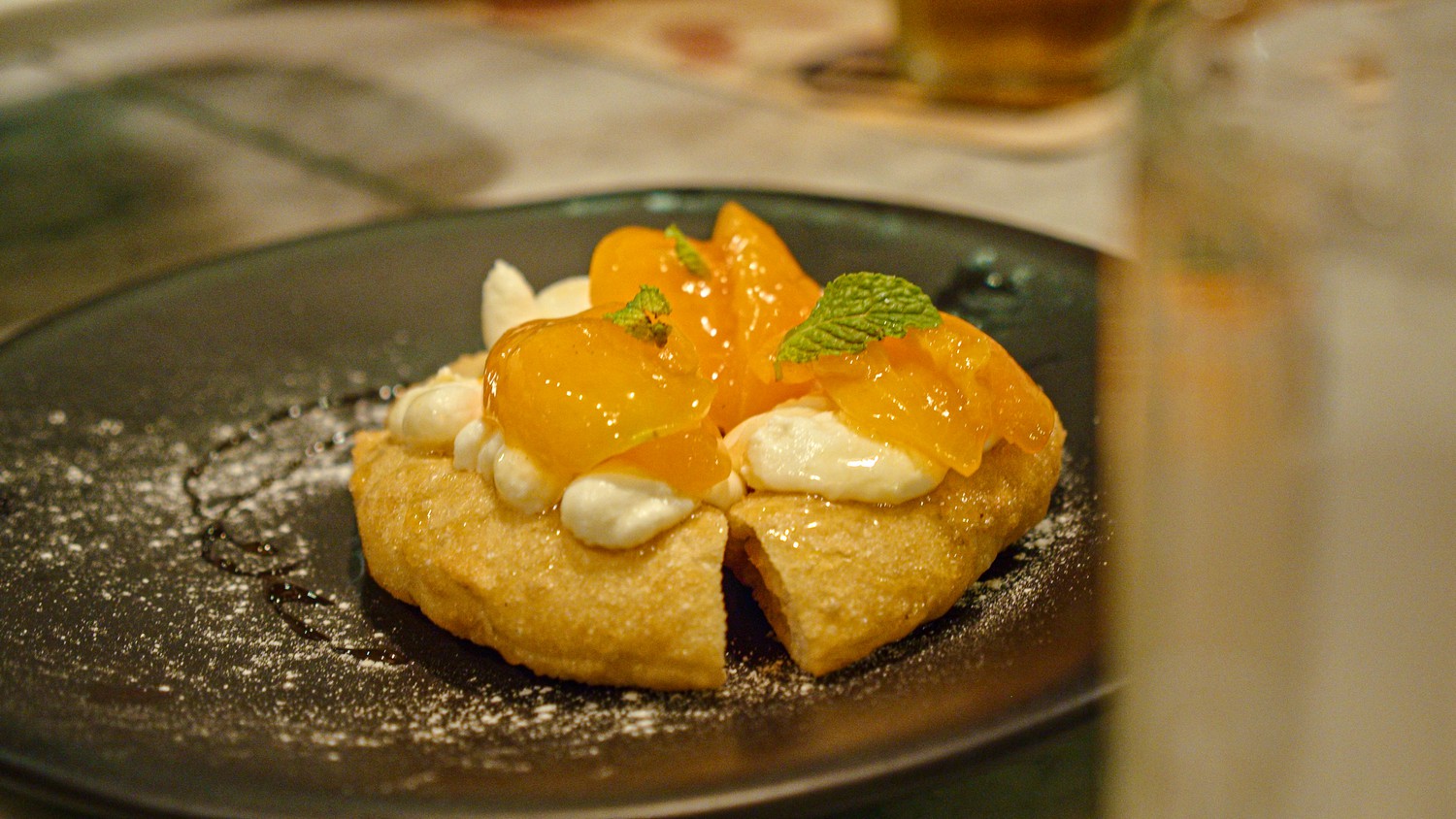
The Best Chef: That’s a great achievement, a great result. There may have been some compromises, but I wouldn’t even call them compromises.
Paolo Vitaletti: Yes, indeed, it’s a result. And surprisingly, humble origins enrich it greatly. It’s considered ‘poor’ food, yet it blends with its surroundings and becomes a fantastic medium for bringing people together over pizza. That’s why using local products is important. As you have eaten here pizza with saigua. It is also a very important thing, and beautiful. It is beautiful because it increases the value of the environment where you are. Of course, we as well, we always want to respect small producers, so called „kilometer zero”. But also more than anything else people who work for quality and for sustainability. So,especially lately searching for producers of local vegetables or using local fruits. It gives us great pleasure and brings leads to what pizza really is: a basis to unite.
The Best Chef: What do you think about the new approach to pizza among the younger generation of global Italians? What is your opinion about the future?
Paolo Vitaletti: I think that in the last five years, pizza has exploded in popularity, and naturally, it is a good thing because when there is such an explosion, there is a lot of competition, and therefore the level always rises. So it’s positive from that point of view. Of course, social media has a big impact on all of this explosion, and it was also understood that the business of the pizzeria is a business which goes well, which brings and grows, so therefore it’s good. And so I think it’s one positive thing. I honestly don’t see any negativity in this thing of modern pizza. It’s good that people do experiments, as doing experiments at the end of the day brings about evolution, so to speak.

